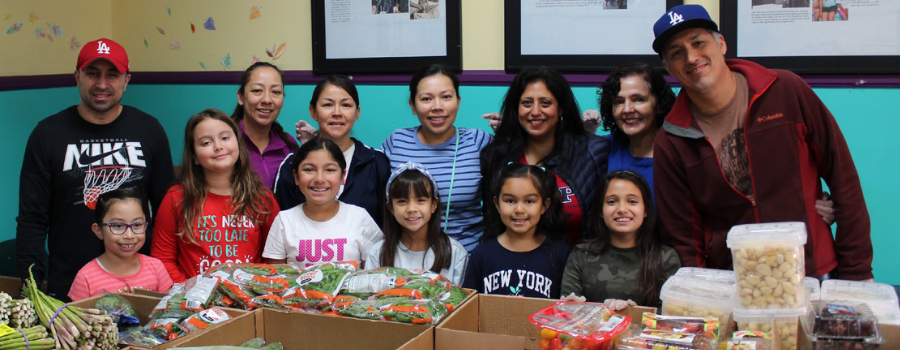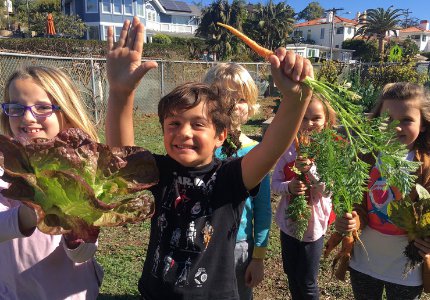Food Recovery Organizations and Services

In Los Angeles, this troop of Girl Scouts and their parents help provide donated food to people in need.
SB 1383 requires mandated food donors to:
- Donate their excess edible food to a local food recovery organization or service, which includes, but is not limited to:
- Food banks
- Food pantries
- Soup kitchens
- Other non-profits that distribute food to people in need
- Food runners
- For-profit food recovery services
- Establish contracts or written agreements with food recovery organizations, which can include:
- Establishing a regular food donation or collection schedule
- Identifying allowable foods for donation
- Cost-sharing options

Funding to Start New or Expand Existing Food Recovery Organizations and Services
Since 2018, CalRecycle has awarded $29.1 million to over 100 Edible Food Recovery and Food Waste Prevention projects, which has:
- Prevented over 312 million pounds of edible food from being landfilled
- Distributed the equivalent of more than 260 million meals
(data as of March 2025)
Requirements
SB 1383 does not require food recovery organizations and services to participate. It is at their discretion to decide if they would like to participate.
If a food recovery organization or service chooses to participate, they must:
- Establish contracts or written agreements with mandated food donors
- Follow recordkeeping requirements
Recordkeeping Requirements
Food recovery organizations and services that have a contract or written agreement with a mandated food donor must maintain records of the food they receive from each mandated food donor.
- CalRecycle’s Model Recordkeeping Tool: Can be used to ensure compliance with the recordkeeping requirements. The use of this specific tool is optional.
Total Pounds Collected
Food recovery organizations and services that participate in SB 1383 must also report the total pounds collected in the previous calendar year to the jurisdiction where their primary address is physically located.
Resources for Food Recovery Organizations and Services
- Model Food Recovery Agreement
- Model Recordkeeping Tool for Food Recovery Organizations and Services
- Safe Surplus Food Toolkit (guidance for food facilities)
- Safe Surplus Food Donation Toolkit (guidance for environmental health departments)
- California Food Bank Locator Tool
- SB 1383 Education and Outreach Materials
- Grants and Funding Opportunities
- CalRecycle Food Waste Prevention and Rescue Grants Brochure
For more information contact: Short-Lived Climate Pollutants (SLCP), Organic Waste Methane Emissions Reductions, SLCP.Organics@calrecycle.ca.gov
